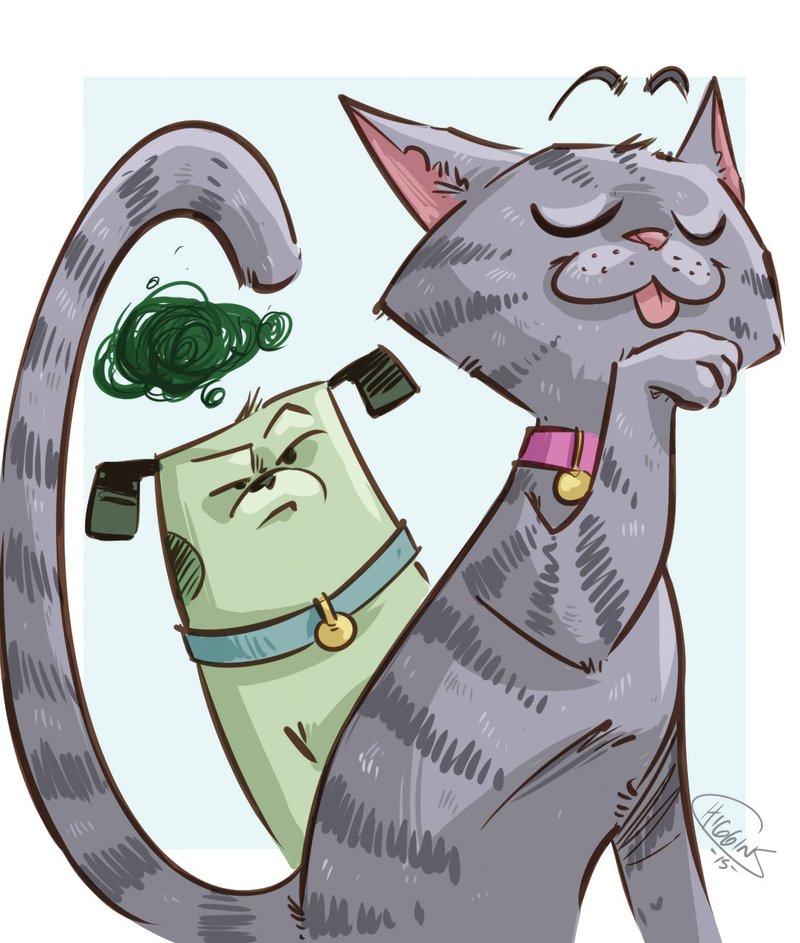I want to ask you about sibling rivalry between two rescued animals -- a cat and a beagle mix I got about two weeks ago. The dog is so jealous of the cat. When he was at the rescue place, he did not chase or bug the cats. Now, after he is over his fear of me and his new home, he is jealous of the cat and barks when she tries to get on my lap. He growls sometimes when the cat tries to get to me on the bed, but it doesn't sound like a mean growl.
There definitely could be a little sibling rivalry going on as your new housemates get to know each other, but this also is a case of a beagle being a beagle, says professional dog trainer Karen Kelley of North Little Rock.
Kelley, who trains and assesses the behavior of rescued dogs, says your dog doesn't seem to be displaying aggressive behavior, but is succumbing to the call of his genetic code. Beagles are hunting dogs bred to track and tree game. A beagle (even a mix) with no job to perform will still want to act upon his instinct. In your dog's case, he could be barking to let you know the cat has been "treed."
Since the dog wasn't bothered when he lived with cats in the past, he probably has no problem with his new feline sibling -- although he may not be thrilled by the cat sitting on his favorite person.
"Obviously, the cat isn't bothered by the beagle," Kelley says. "As long as the cat is doing well with the dog, they're probably going to be hanging out easily." The pair may need a little more time to adjust. Rescued animals typically need at least a month to really settle in to a new home and figure out how they fit into their family or pack.
Kelley advises helping your cat and dog bond by taking them for walks together. Don't worry -- this doesn't mean you need to teach your cat to walk on a leash. But do put the dog on a leash, then put your cat in a soft carrier with mesh walls (make sure it's securely fastened) and take the cat along for the trek.
While her advice might sound unconventional, Kelley says, it makes sense because cats and dogs like to migrate or keep moving. Taking them for walks fulfills a basic need.
"This is a great bonding for the cat and dog," Kelley says. "They are both migratory animals and by taking them out together on a leash and in a carrier, we reinforce that behavior." The activity also will help strengthen your pets' bond with you because you'll be migrating as a pack. Another benefit is that getting out to see and smell new things will be mentally stimulating for both animals. "Cats love being out like that and it's a safe way for a cat to be out."
A beagle is a high-energy dog so taking two 20- to 30-minute walks a day will also help him work off excess energy. Kelley also recommends playing "scent games" to provide the dog with mental and physical exercise. For this, you'll need an oil with an animal scent; you can buy these at stores that sell supplies for hunters.
Kelley suggests getting raccoon or deer scent. Always wear rubber gloves while using the scent, taking care not to get the scent on you or your clothing. Sprinkle a little of the oil on a paper towel, then drag the towel along the ground in the yard to create a scent pathway. End by trailing the scent upward on a tree trunk. After a walk, let your dog loose in the yard to find the scent. He'll follow it and end by "treeing" the animal he believes he's tracking. After all this activity, treeing and baying at your cat should be less important.
In the house, Kelley says, you can further the bonding process by placing a towel or blanket the cat has slept on in the dog's crate or bed. After the dog has slept on it, place it where the cat will lie on it.
When the beagle starts barking while the cat is in your lap, get his attention and have him sit. When he has stopped barking, praise and reward him. You could even give the cat a kitty treat so that the pair will be treated equally. At some point, you can even invite the dog to sit with you and the cat. However, if he continues barking, simply set the cat aside, get up and leave.
"In everything," Kelley says, "try to stay calm and don't let yourself get frustrated."
Family on 01/28/2015
